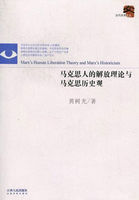She did not return. His recovery in that keen air, aided, as he sometimes thought, by the herbs she had given him, was almost as rapid as his illness. The miners did not again intrude upon the lighthouse nor trouble his seclusion. When he was able to sun himself on the sands, he could see them in the distance at work on the beach. He reflected that she would not come back while they were there, and was reconciled. But one morning Jim appeared, awkward and embarrassed, leading another Indian, whom he introduced as Olooya's brother. Pomfrey's suspicions were aroused. Except that the stranger had something of the girl's superiority of manner, there was no likeness whatever to his fair-haired acquaintance. But a fury of indignation was added to his suspicions when he learned the amazing purport of their visit. It was nothing less than an offer from the alleged brother to SELL his sister to Pomfrey for forty dollars and a jug of whiskey!
Unfortunately, Pomfrey's temper once more got the better of his judgment. With a scathing exposition of the laws under which the Indian and white man equally lived, and the legal punishment of kidnaping, he swept what he believed was the impostor from his presence. He was scarcely alone again before he remembered that his imprudence might affect the girl's future access to him, but it was too late now.
Still he clung to the belief that he should see her when the prospectors had departed, and he hailed with delight the breaking up of the camp near the "sweat-house" and the disappearance of the schooner. It seemed that their gold-seeking was unsuccessful; but Pomfrey was struck, on visiting the locality, to find that in their excavations in the sand at the estuary they had uncovered the decaying timbers of a ship's small boat of some ancient and obsolete construction. This made him think of his strange dream, with a vague sense of warning which he could not shake off, and on his return to the lighthouse he took from his shelves a copy of the old voyages to see how far his fancy had been affected by his reading. In the account of Drake's visit to the coast he found a footnote which he had overlooked before, and which ran as follows:
"The Admiral seems to have lost several of his crew by desertion, who were supposed to have perished miserably by starvation in the inhospitable interior or by the hands of savages. But later voyagers have suggested that the deserters married Indian wives, and there is a legend that a hundred years later a singular race of half-breeds, bearing unmistakable Anglo-Saxon characteristics, was found in that locality." Pomfrey fell into a reverie of strange hypotheses and fancies. He resolved that, when he again saw Olooya, he would question her; her terror of these men might be simply racial or some hereditary transmission.
But his intention was never fulfilled. For when days and weeks had elapsed, and he had vainly haunted the river estuary and the rocky reef before the lighthouse without a sign of her, he overcame his pride sufficiently to question Jim. The man looked at him with dull astonishment.
"Olooya gone," he said.
"Gone!--where?"
The Indian made a gesture to seaward which seemed to encompass the whole Pacific.
"How? With whom?" repeated his angry yet half-frightened master.
"With white man in ship. You say YOU no want Olooya--forty dollars too much. White man give fifty dollars--takee Olooya all same."















